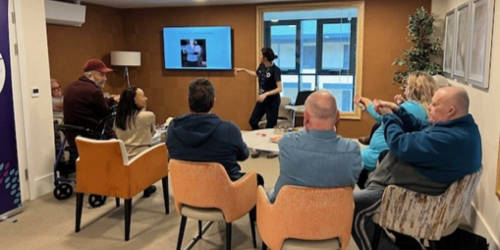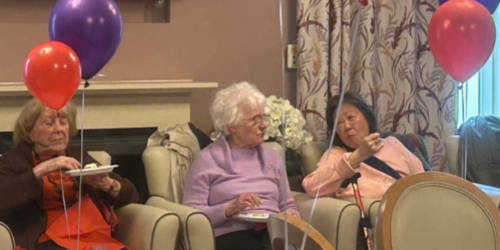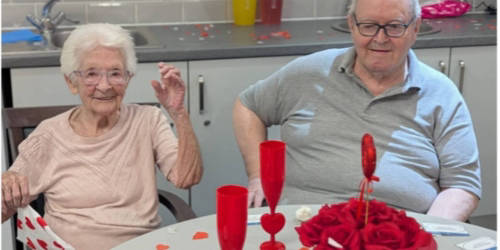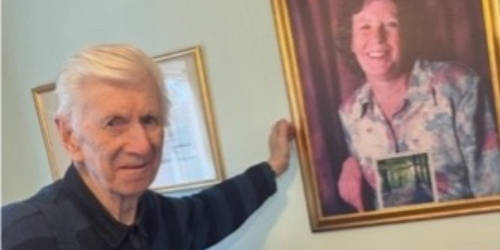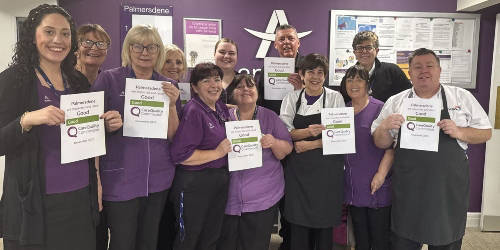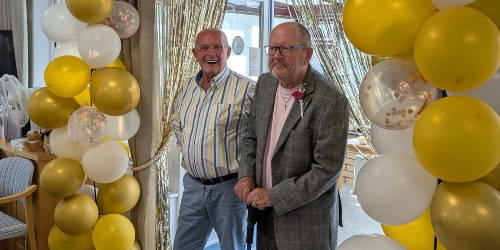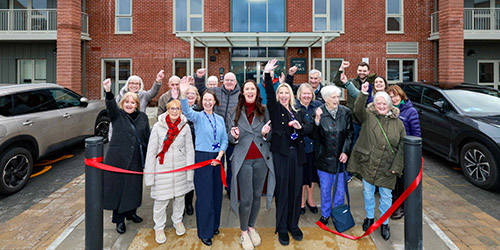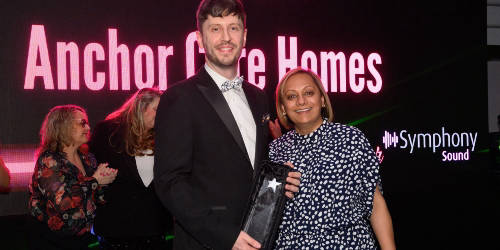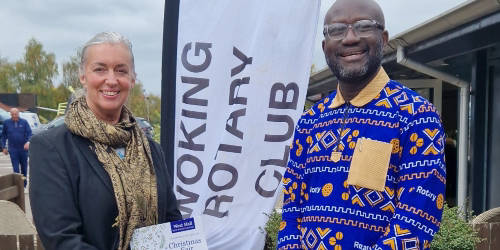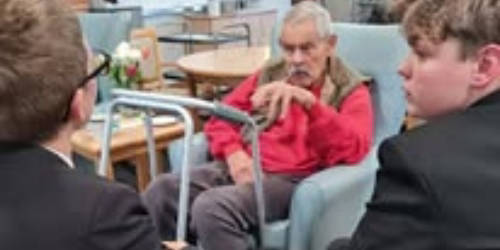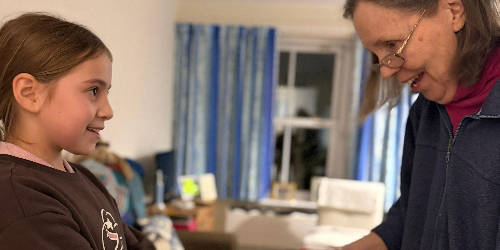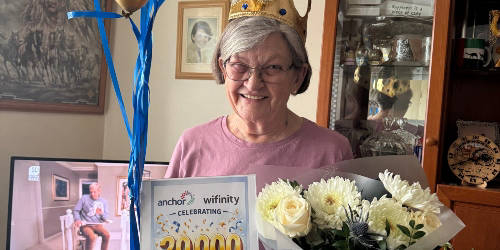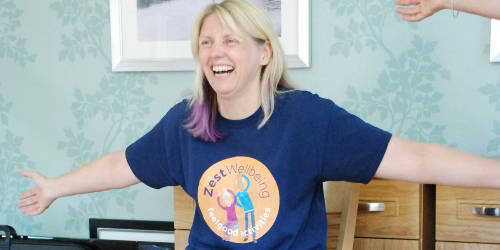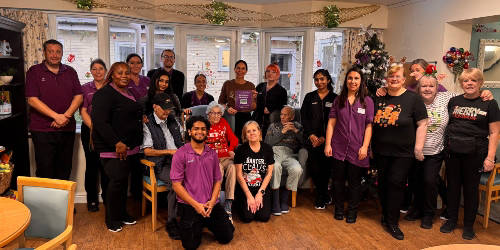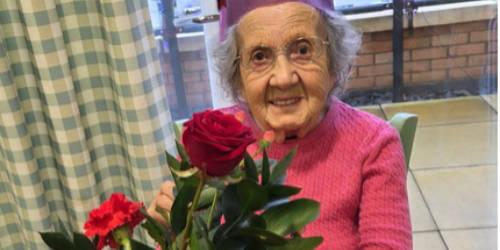- Home
- Media centre
- Press room
- Music4theMind
16 May 2022
Music 4 The Mind
-
75% of older people find joy in music
-
84% of older people say music helps to bring back fond memories
-
78% of the public call for greater access to dementia music therapy
-
74% of the public would want music therapy if they developed dementia themselves
 We've launched our dementia music therapy research project with Anglia Ruskin University’s Cambridge Institute for Music Therapy Research, with funding from The Utley Foundation. The project calls for music therapy to be implemented more widely in dementia care policies.
We've launched our dementia music therapy research project with Anglia Ruskin University’s Cambridge Institute for Music Therapy Research, with funding from The Utley Foundation. The project calls for music therapy to be implemented more widely in dementia care policies.
With an ageing population and reports of up to 50,000 dementia cases being missed during lockdown, there’s mounting concern and conversation around dementia in the UK. Research from Anchor, reveals that 67% of the public now worry about a loved one getting dementia – an 8% increase since January 2021.
In response, we are launching an innovative 18-month project to improve outcomes for residents living with dementia through the transformative power of music. The partnership, launched in collaboration with Anglia Ruskin University’s Cambridge Institute for Music Therapy Research, with funding from The Utley Foundation, will also upskill care workers in the power of music in dementia care therapy, enriching the care we provide to residents.
Anchor is one of the first care home providers in the UK to partner with a university to implement music therapy sessions into its dementia care pathway. The project positions music therapy at the forefront of dementia care, and with 78% of the public saying music therapy sessions should be widely available for people living with dementia, we are calling on government to include it within its forthcoming Dementia Care White Paper. We are also asking that local authorities, local NHS trusts and care commissioners should promote and raise awareness of music therapy in all dementia care packages and to ensure information and resources are available to all people living with dementia following diagnosis.
 Music, memories and mental health
Music, memories and mental health
Every three minutes, someone in the UK is diagnosed with dementia. By tapping into the power of music, the project aims to bring joy and comfort, trigger fond memories and benefit the mental health of people living with dementia.
Our research strongly supports the use of music to boost wellbeing, with three quarters (75%) of older people finding joy in music, 84% saying music helps bring back fond memories and 78% saying music is beneficial for older people’s mental health.
Demand for music therapy
With the number of people with dementia expected to rise from 1.1 million to 1.6 million by 2050 in the UK, ensuring dementia care is specialised and adapted to the growing number of people diagnosed is pivotal to maintaining quality of life. This is supported by public sentiment, with a compelling 78% saying music therapy sessions should be widely available for people living with dementia.
Looking closer to home, 74% would want music therapy if they developed dementia themselves, and 76% would want music therapy available for a loved one living with dementia. This sentiment is reinforced in the recent UK Music and Music for Dementia’s Power of Music report which supports the call for greater access to music projects to improve wellbeing outcomes.
Music 4 The Mind
With support from an expert music therapy team at Anglia Ruskin University’s Cambridge Institute for Music Therapy Research, with funding from The Utley Foundation, the 18-month project will launch across 13 of Anchor’s care homes across England. Starting in the South and working up to Yorkshire, the music therapy will involve both group and individual sessions. This person-centred approach helps ensure each resident receives tailored care to best meet their needs.
Each session will include a different mix of songs, activities and instruments, to achieve maximum benefit for residents and to train carers in a range of exercises. The sessions form part of our focus on reminiscence therapy, which provides people with opportunities to bring back memories. During sessions, residents will be singing their favourite songs tailored to them and their interests.
The therapy also includes a physical element by empowering residents to experiment with playing different instruments, which includes many instruments such as a tambourine and skin drum, to create original music.
Everyone can see the music therapy sessions taking place or get involved by playing music with a loved one, using #Music4theMind on social media.
Asa Johnson, Dementia Services Improvement Manager at Anchor, is leading the project’s rollout. He said:
Every day, we see how music transforms our residents' wellbeing and moods. It is truly inspiring to see our residents’ faces light up during the sessions.
With 78% of the public calling for wider access to dementia music therapy, it’s encouraging to see its importance being recognised. We look to the upcoming Dementia Care White Paper to commit to implementing music therapy more widely in dementia care policies and pathways, to ensure all those living with dementia can live life to the full.
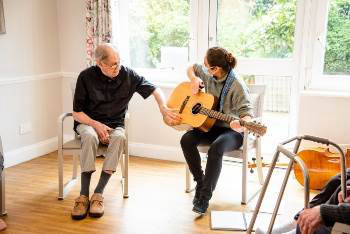 Clive Collett, age 76, has dementia and lives at Anchor’s Oakleigh care home in Surrey. Clive’s wife Wendy says:
Clive Collett, age 76, has dementia and lives at Anchor’s Oakleigh care home in Surrey. Clive’s wife Wendy says:
He’s always loved music, so I was really pleased when they told me he would be participating in music therapy and be offered individual sessions too. He comes alive whenever music comes on.
Tabitha Harrison-Lyons, Manager at Anchor’s Oakleigh care home, and colleague being trained to deliver dementia music therapy sessions, commented:
We’ve always been committed to person-centred care and strive to give every resident the best quality of life. The skills we learn in these sessions will help those living with dementia by ensuring we are empowered with the knowledge to best support them. It’s a fulfilling career opportunity as well as a chance to provide pioneering care.
Helen Odell-Miller OBE, Professor of Music Therapy, Director of the Cambridge Institute for Music Therapy Research and Head of Therapies at Anglia Ruskin University, says:
The beauty of music therapy for people living with dementia is that it can be tailored to meet individual requirements and interests, it can help reduce symptoms such as agitation and depression, can enable relationships with carers and loved ones, and can bring joy and comfort. Memories can be sparked, and the music therapist engages with these memories to improve wellbeing.
We’re thrilled that Anchor shares our passion for implementing music therapy into everyday care for people living with dementia. We hope this project proves the importance of access to music therapy for all.
Lizzie Cody, Foundation Manager, The Utley Foundation said:
We are delighted to support this innovative and impactful partnership between Anglia Ruskin and Anchor. Integrating music into dementia care across the spectrum has always been our aim and we hope this work will take us one step further towards that goal. It has been a pleasure to work with the two organisations as they crafted this programme of work, and we are excited to see how much benefit Anchor residents receive from music. We hope this blueprint will inspire other care groups to consider how they might use music in their own work.
Read more from Anchor
This website uses cookies which track activity so that you get the best possible experience. By continuing to use this website we will assume you are happy and cookies will be set. You can change your cookie settings at any time.


